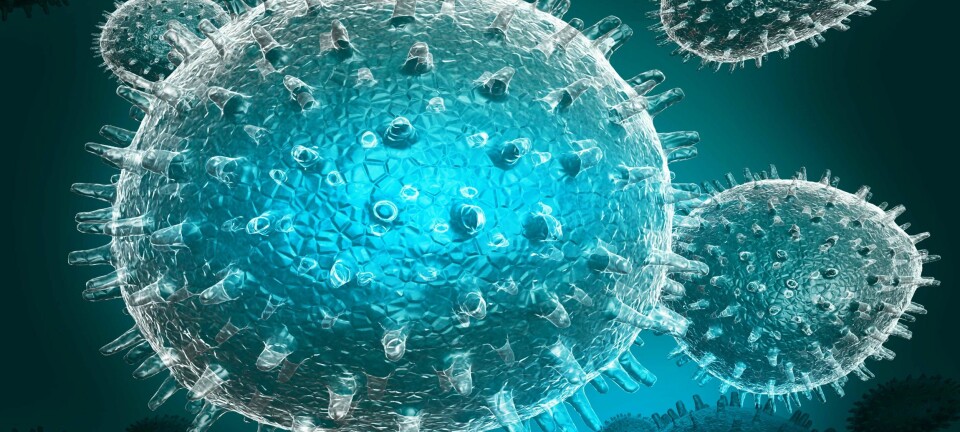
Mutations in noncoding DNA also cause cancer
New discovery could lead to novel field of study within cancer research.
An international group of cancer researchers have completed the first ever systematic study of noncoding DNA. They found that mutations in the noncoding DNA can, despite previous beliefs, cause cancer.
Until now, scientists have only investigated 1.5 per cent of the total humane DNA. This is the part of the DNA which consists of genes. The remaining 98.5 per cent of the DNA is called noncoding DNA and resides outside of the genes.
The study, just published in Nature Genetics, shows that the majority of cancer patients have mutations in both their genes and the areas outside the genes.
The discovery could lead to a completely new field of study within cancer research and prevention.
"In the long term this may lead to better diagnoses and treatments," says co-author postdoc Anders Jacobsen from the University of Copenhagen at the department of Computational and RNA Biology.
Over the past 10 years scientists have found more and more abnormalities in DNA which lead to cancer.
Colleague is excited
Professor and Head of the Department of Genomic Medicine at Rigshospitalet Finn Cilius Nielsen did not contribute to the study, but has read it and is very excited.
He says the study shows the importance of looking into the noncoding regions of our DNA.
“It's interesting and points to the fact that we could discover clinically relevant information from the noncoding regions," says Nielsen. "Studies like this one could come up with some vital explanations for the causes of cancer," says Nielsen.
Examined 20 different cancer types
The scientists were looking at DNA mutations in 800 cancer patients with more than 20 different types of cancer.
They compared DNA from the patients' tumours with DNA from healthy tissue from the same patients. By doing so they were able to identify the differences between healthy and sick cells and the reason why the tumour had grown.
The scientists were interested in the noncoding regions of the DNA. These regions do not translate into protein as genes do -- instead, they have a different, biochemical task. They regulate how much of a particular gene is expressed. That is, if the gene is to be “on” or “off”.
“For the first time we have been able to see mutations in the noncoding DNA and how these can be the direct cause of cancer,” says Jacobsen.
Mutation gives cancer eternal life
Several mutations connected to the development of cancer were discovered by the scientists. They found that mutations in the front area of the gene which controls the length of telomeres, can trigger cancer.
Telomeres decide how many times a cell can divide and every time a cell divides the telomeres becomes shorter.
This means that at some stage the telomeres are so short that the cells can not longer divide.
However, mutations in the region before the gene TERT makes the gene hyperactive. The length of the telomeres are then extended much more than what is considered normal and a mutation like this will make the cell keep on dividing itself -- eventually forming a tumour.
“This mutation in the noncoding part of the DNA basically gives the cancer cells eternal life," says Jacobsen. "It was exciting that our research proved to have such a concrete result."
The scientists found that this mutation was the most frequent occurrence of cancer-causing mutations outside the gene.
More studies in the future
Jacobsen is convinced there will be many more studies wlooking at the noncoding DNA in the future.
"Our study shows that there's something here which needs to be looked at. With more studies, we can get a much better insight into what happens in cells when cancer occurs,” says Jacobsen. “We can learn a lot about he different cancers and their causes from this. In the long run we hope to develope new treatments.”
Nielsen agrees that there is a need for further studies in the area.
"We need more studies of this kind. I think it'll happen naturally. Within the next 10 to 15 years we'll be able to do complete genome sequencing quickly and cheaply, and then we'll naturally look at mutations in the entire genome -- rather than just in the genes," he says.
--------------
Read the original story in Danish on Videnskab.dk
Translated by: Louisa Field








